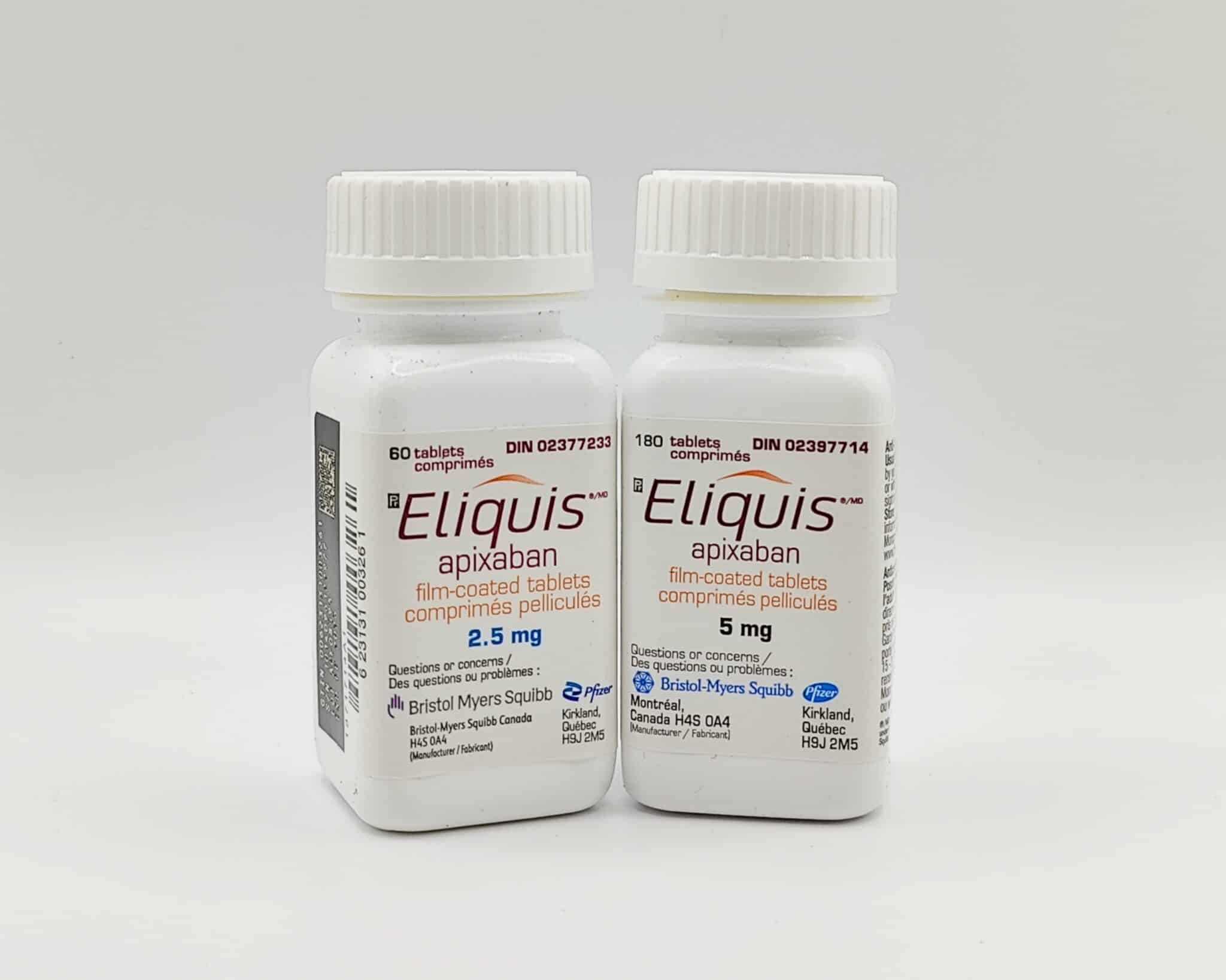How Stress and Exercise Impact the Effectiveness of Blood Thinners
How Stress and Exercise Impact the Effectiveness of Blood Thinners
- Jason K
Blood thinners like Eliquis (apixaban), Xarelto (rivaroxaban), and Warfarin (Coumadin) are life-saving medications for individuals at risk of blood clots, strokes, or other cardiovascular complications. While these medications play a critical role in preventing clot formation, lifestyle factors like stress and exercise can influence their effectiveness and the overall health of the individuals taking them.
This article explores how stress and exercise interact with blood thinners, offering practical tips for safely managing these factors.
How Stress Affects Blood Thinners
Stress can take a toll on the cardiovascular system, and for individuals on blood thinners, this can introduce additional complications.
Stress and Its Effects on the Body
Chronic stress leads to the release of cortisol, a hormone that affects various physiological processes:
- Elevated Blood Pressure: High cortisol levels increase blood pressure, potentially exacerbating conditions blood thinners are prescribed to manage.
- Impact on Clotting Factors: Although not fully understood, stress may influence clotting mechanisms, potentially affecting the balance blood thinners are designed to achieve.
Behavioral Changes Caused by Stress
Stress often leads to unhealthy habits that can interfere with blood thinners:
- Missed Doses: Forgetting to take medications due to stress can result in reduced effectiveness.
- Dietary Changes: Emotional eating or poor nutrition may include foods that interact with blood thinners, such as Vitamin K-rich greens in Warfarin users.
- Increased Alcohol Consumption: Alcohol can heighten the risk of bleeding, especially when combined with blood thinners.
Managing Stress to Support Blood Thinner Therapy
Effectively managing stress can improve both medication adherence and cardiovascular health:
- Practice Relaxation Techniques: Yoga, meditation, and deep breathing exercises reduce cortisol levels and promote heart health.
- Maintain a Routine: Set reminders for taking medication on time to prevent missed doses.
- Monitor Your Health: Regularly check blood pressure and clotting levels (e.g., INR for Warfarin users) to detect any stress-related changes.
The Benefits of Exercise for Patients on Blood Thinners
Exercise is a cornerstone of cardiovascular health and complements the benefits of blood thinner therapy.
Why Exercise is Beneficial
- Improved Circulation: Physical activity promotes healthy blood flow, reducing the risk of clot formation.
- Heart Health: Regular exercise strengthens the heart and lowers the risk of cardiovascular events.
- Stress Reduction: Exercise releases endorphins, which naturally reduce stress and improve mood.
Safe Exercises for Patients on Blood Thinners
Not all exercises are created equal when taking blood thinners. Low-impact and controlled activities are ideal:
- Walking: Improves circulation and is easy to incorporate into daily routines.
- Swimming: A full-body workout that minimizes strain on joints and reduces the risk of falls.
- Yoga: Enhances flexibility, balance, and relaxation without high-impact movements.
- Cycling (Stationary or Outdoor): Builds endurance and strengthens leg muscles with low injury risk.
Exercises to Avoid While on Blood Thinners
Certain activities pose higher risks for patients taking anticoagulants, as they can lead to injuries or excessive bleeding:
- Contact Sports: Football, boxing, or rugby can result in bruising or trauma.
- High-Impact Activities: Running or jumping puts stress on joints and increases the risk of falls.
- Extreme Sports: Skiing, rock climbing, and other high-risk activities elevate the chance of severe injuries.
Always consult your doctor before starting any new exercise program.
Timing Exercise Around Medication
For many patients, the timing of exercise relative to blood thinner administration can improve safety and comfort.
- After Taking Medication: Some individuals may feel more at ease exercising after their medication has had time to work.
- Before Medication: Others may prefer exercising earlier to avoid feeling lightheaded or fatigued from the medication.
- Individualized Approach: Discuss with your healthcare provider the best exercise schedule based on your medication type and routine.
How Stress and Exercise Work Together
Stress and exercise are interconnected. While chronic stress can worsen cardiovascular health, exercise can help mitigate these effects:
- Endorphin Release: Regular exercise boosts endorphins, reducing cortisol and improving mental well-being.
- Adherence to Medication: Patients who exercise often develop healthier routines, improving medication adherence.
- Enhanced Heart Health: Together, stress reduction and exercise create a positive feedback loop, strengthening the heart and vascular system.
Practical Tips for Staying Safe
1. Monitor for Side Effects
Be aware of common signs of complications, such as:
- Bruising: Frequent or unexplained bruising may indicate your blood is too thin.
- Prolonged Bleeding: Seek medical attention if a minor cut doesn’t stop bleeding within 10 minutes.
- Dizziness: Could be a sign of overexertion or an issue with your medication.
2. Consult Your Doctor
Always inform your healthcare provider before making lifestyle changes, such as adding new exercises or managing increased stress levels.
3. Build a Balanced Routine
- Combine low-impact exercises with stress-relief activities like meditation.
- Maintain a consistent medication schedule alongside your lifestyle changes.
4. Stay Hydrated
Proper hydration supports circulation and prevents dizziness during physical activity.
5. Eat a Heart-Healthy Diet
- Focus on whole grains, lean proteins, and fresh produce.
- For Warfarin users, avoid large fluctuations in Vitamin K intake from foods like spinach or kale.
Conclusion
Managing stress and incorporating exercise into your routine are vital components of overall health, particularly for individuals taking blood thinners like Eliquis, Xarelto, or Warfarin. While stress can interfere with medication effectiveness and adherence, exercise offers numerous cardiovascular benefits that complement anticoagulant therapy.
By choosing safe, low-impact activities and actively managing stress, patients can enhance their quality of life and reduce their risk of complications. Always consult with your healthcare provider to tailor your lifestyle changes to your unique medical needs. With the right balance of medication, activity, and stress management, you can stay healthy and active while reducing the risks associated with blood clots.
Reference:


